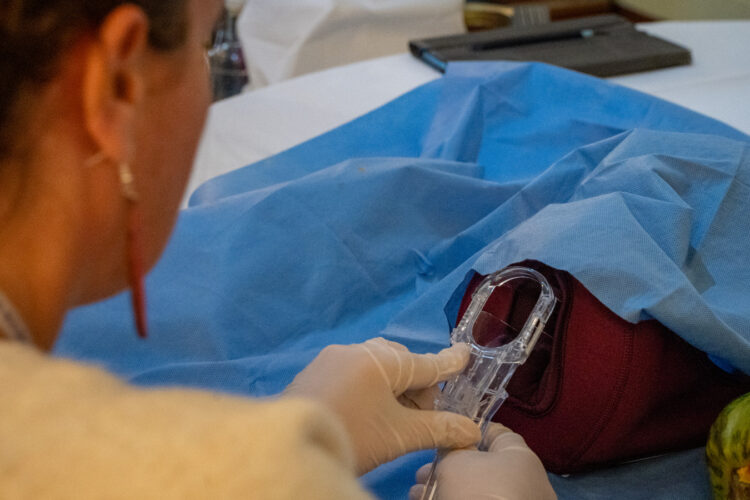Expanded Practice, Expanded Horizons: A Rural Midwife’s Journey into Abortion Care

By Shelley Tweedie, Midwife Manager, Kaitaia Hospital (Auckland, New Zealand)
In 2020, New Zealand reformed its abortion laws, removing abortion from the Crimes Act and reframing it as a health issue. This landmark change opened the door for a broader range of healthcare professionals—including midwives—to provide early medical abortion (EMA) care. Our profession is embedded in values of partnership, autonomy, and holistic support so this legal shift marked a profound opportunity to deepen our commitment to women and reproductive autonomy.
Midwives are uniquely positioned to provide abortion care, especially in underserved areas. Our accessibility, trustworthiness, and holistic approach make us ideal providers of EMA services. As a rural midwife, I’ve embraced this change and expanded my scope of practice to include EMA care. This article shares my journey and the impact this has had on my community.
Stepping Into New Territory
Supporting families (whānau in Māori) through a process that was unfamiliar to my known scope required me to stretch beyond my comfort zone and embrace a new dimension of midwifery care. Expanding my practice sparked significant professional growth—the learning was dynamic and engaging. I gained fresh insights, developed new language and understanding, and found myself reflecting on unfamiliar yet meaningful encounters. The process of upskilling brought a profound sense of purpose, knowing that this work directly impacts and strengthens my rural community.
What It Meant for Me Professionally
- Rediscovering the Joy of Learning: Training in EMA and ultrasound reignited my passion for professional growth. It reminded me that midwifery is a dynamic, evolving field.
- Supporting Whānau Autonomy: Midwifery has always been about walking alongside people in their reproductive journeys. Supporting someone choosing to end a pregnancy is just as meaningful as supporting someone choosing to continue.
- Culturally Responsive Care: In my rural, predominantly Māori community, understanding tikanga (customs and values) and Māori ways of being is essential. Providing abortion care in a way that respects these values has been deeply rewarding.
- Community Celebration: Local health services welcomed this expansion with open arms. It was seen as a long-overdue solution to reduce barriers to timely, safe, and accessible abortion care.
Key Reasons to Expand Practice
- Midwifery Is Grounded in Human Rights: The profession is built on principles of autonomy, partnership, and informed choice. Abortion care is a natural extension of these values.
- Reducing Stigma: Midwives often have long-standing relationships with their clients. This trust allows us to offer non-judgmental care that helps dismantle shame and guilt around abortion.
- Improving Access: Midwives are often known in communities and are the most accessible health professionals. By offering EMA, we reduce the need for women to navigate complex referral pathways or travel long distances.
- Enhancing Continuity of Care: Midwives are accustomed to supporting women in the context of their whānau and individual needs. This continuity is especially valuable in abortion care, where culturally responsive care is critical.
Midwife-Led Early Medical Abortion Care
When midwives are available to provide abortion care, communities benefit from:
- Earlier Access: EMA can be safely provided in the first 10 weeks of pregnancy. Midwives offering this service help improve access and outcomes.
- Reduced Cost: Local services and less reliance on specialist referrals means lower travel and healthcare costs for women.
- Culturally Responsive Care: Improved experiences of abortion for whānau by receiving midwifery care grounded in principles that are mana enhancing – making them feel respected, valued, and supported in their choices.
- Sustainable Services: Communities will always need midwives. Embedding abortion care into midwifery practice ensures long-term service availability.
Reflections
Expanding into abortion care has deepened my understanding of what it means to truly support women and adolescents in their reproductive journeys. It’s about manaakitanga—offering care that uplifts, respects, and empowers. It’s about helping people step into their own power, make decisions for themselves, and feel supported every step of the way.
As midwives, we are more than supporters of whanau continuing in their pregnancy towards birth and the postnatal period. We are guardians of reproductive autonomy. By embracing abortion care, we honor the full spectrum of reproductive experiences and reaffirm our commitment to the people we serve.